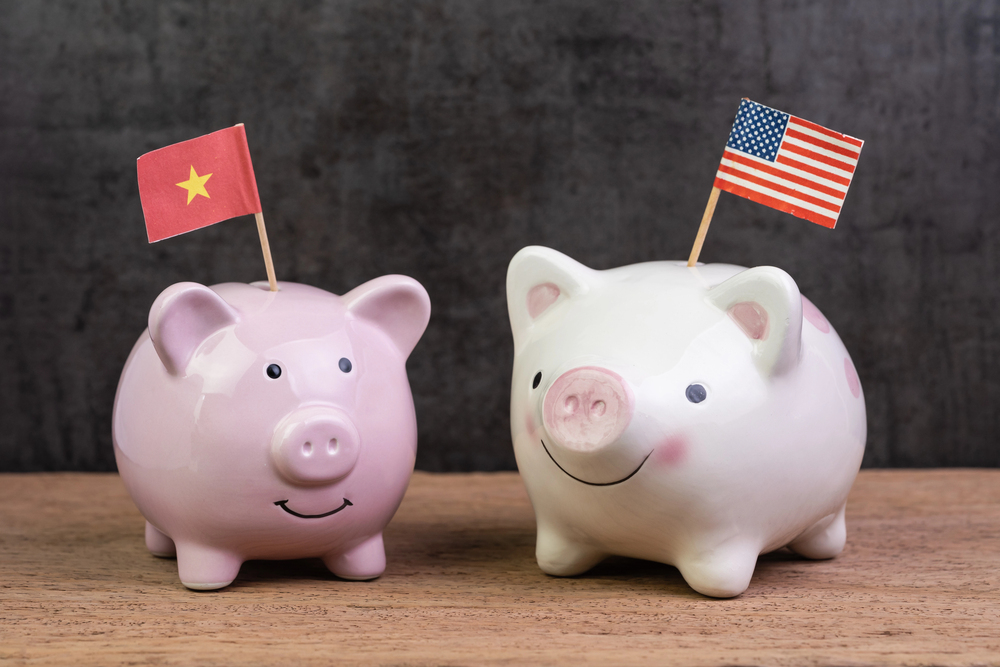Partner content
China has emerged from the Trump deal strategically better off

Investors should not ignore the the value of a well run company or, if you look at the US China trade-off, a well run country, writes Luke Staden, founder of Staden Financial Management.
When the tariffs came in April, it was an emotional time. JD Vance said the US had been borrowing money from Chinese peasants and Trump said China needed the US to survive.
I fondly remember Victor Gao’s remarks, “China has been here for 5,000 years. Most of the time, there was no United States and we survived. And if the United States wants to bully China, we will deal with the situation without the United States, and we expect to survive for another 5,000 years.”
Since then, we’ve seen a pattern emerge from the US. Trump will declare sweeping destructive tariffs that threaten US and foreign economic prospects. He is holding a box of matches in a room filled with petrol and telling everyone that if he needs to win or everyone is getting burned.
Winning headlines
I believe he thinks such displays show he’s a strong decisive leader. However, he’s always shown to be weak when he reneges on these decisions when the smallest crumb of his demands are met.
In short, all Trump is looking for is to have headlines tell everyone he’s winning. Most foreign leaders have more nuanced goals, which often involve improving the long term economic prospects for their countries.
This fundamental disconnect is why the Busan meeting was never a negotiating session, but a masterclass in political stagecraft. Trump’s effusive praise—calling the meeting “amazing” and rating it “12 on a 10-point scale”—was the precise, headline-ready product he wanted.
The agreement itself was an elegantly simple transaction: China traded two low-cost concessions for a high-value reduction in US tariffs. Both parties got a “win,” but only one of them secured a substantive, long-term economic gain.
What did China give up?
Let’s be clear about what China gave up. They agreed to resume soybean purchases. This is an obvious, easy-to-reverse commercial decision that placates the critical American farm belt and provides a neat, tangible figure for a US press release.
China had already successfully diversified its supply chains and this simply gives American farmers temporary relief and an optimistic headline, while not structurally binding Beijing.
They also agreed to a one-year suspension of recently threatened rare earths export curbs. This is a strategic pause, not a surrender of their biggest geopolitical weapon. They didn’t dismantle their decades-long control over the world’s most critical minerals; they simply postponed deploying their latest threat, retaining their chokehold on the supply chain while looking magnanimous.
These concessions are political gestures, flexible to China’s needs, and do not require Xi Jinping to alter a single line of state industrial policy or give up a single inch of industrial strategy.
Tariff reduction
What did they get in return for these symbolic moves? A crucial 10% reduction in US tariffs, bringing the combined rate on Chinese goods down from 57% to 47%. This is the prize. That reduction offers immediate, quantifiable economic relief to countless Chinese manufacturers struggling under the punitive costs of the trade war. It provides essential breathing room and stabilizes the external pressure on their economy.
This is a deal that shows China has learned how to play Trump’s game, and they are playing it better. They understood his primary demand was a headline of success, not a comprehensive structural overhaul.
By giving him the visual—the handshake, the friendly tone, the two specific “concessions”—they were able to secure the measurable, long-term economic benefit they needed, all while leaving the deeper, more complex issues like technology theft, industrial subsidies, and global overcapacity completely unresolved. China survived this exchange and, in my view, emerged strategically better off.
This further supports my view that in 20 years time, most of us will look back wishing we had invested more into China. When investing you cannot discount the value of a well run company or, in this case, a well run country.
Contact Luke Staden of Staden Financial Management to set up a meeting and discuss your particular financial needs or check out the YouTube channel.
Thank you for donating to DutchNews.nl.
We could not provide the Dutch News service, and keep it free of charge, without the generous support of our readers. Your donations allow us to report on issues you tell us matter, and provide you with a summary of the most important Dutch news each day.
Make a donation